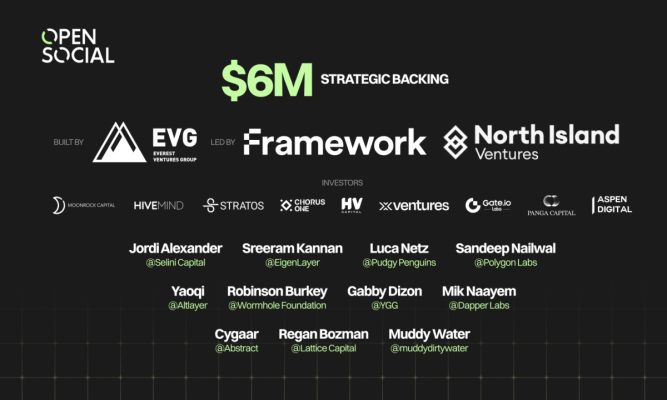There is no doubt that crypto is among the most popular topics we discuss every day. Sudden rises and concerning falls, thousands of crypto projects launched, and some suddenly crashing keep crypto enthusiasts in constant suspense.
And while many crypto assets try to recover after a bear market that surprised and affected many projects and investors, a sector keeps developing new concepts: DeFi.
Now, what is DeFi? Why is it important? And what are some of the best defi organizations that bring truly valuable innovations to the table?
What Is DeFi?
Decentralized finance (DeFi) is a concept that uses DLT (Distributed Ledger Technology) to decentralize multiple financial processes, bringing in financial products from traditional finance.
One of the main benefits of decentralized finance is that it can eliminate the need for third parties and centralized authorities, giving free access to financial services to anyone, from anywhere, with the help of concepts such as dApp (Decentralized Application), DAO (Decentralized Autonomous Organization), decentralized exchanges, and many more.
Basically, DeFi protocols eliminate the need for banks, and once you don’t need them to complete financial transactions, the fees will be significantly lower, too. Besides, DeFi can bring high levels of security, considering that users hold their digital assets in secure wallets and the transactions are conducted based on a peer-to-peer network.
Benefits of DeFi
As we mentioned before, one of the key benefits of DeFi is that it allows users to access financial products and services anywhere, from wherever they might be, with low fees and in a very short time.
Besides, each DeFi transaction is completely transparent, and this is extremely important and can benefit many users, especially in the crypto industry.
Furthermore, unlike centralized finance, decentralized finance is permissionless, meaning that any user who holds a crypto wallet has access to all that DeFi has to offer.
What Is a DeFi Company?
A DeFi company is a type of financial institution that does not rely on centralized organizations such as banks or brokers. Instead, these companies have a business model operating on blockchain technology to make DeFi available worldwide.
DeFi companies usually rely on dApps (Decentralized Applications) and smart contracts to provide various financial services, such as trading, investing, lending, or borrowing. To do that, decentralized organizations use cryptocurrencies, and Ethereum may be the most popular, considering that Ethereum is also the project that made smart contracts popular and allows users to build dApps on top of it.
Top 10+ DeFi Companies to Follow
1. Chainlink

- Funding: $32 billion
- Year founded: 2018
- Location: New York, New York, US
- Growth: Chainlink started its journey with an ICO that raised over $32 billion. At that time in 2017, Chainlink had 1 billion LINK in circulation. One year later, the company acquired Town Crier, a data feed for smart contracts. In 2019, Chainlink launched its platform on the Ethereum blockchain.
In 2020, Chainlink integrated DECO, a protocol that uses zero-knowledge proofs to allow users to communicate with blockchain oracles without revealing sensitive information. Chainlink is a decentralized oracle network launched in 2017 by Sergey Nazarov and Steve Ellis. Basically, Chainlink acts as a bridge between blockchain-based projects and real-world data by using hybrid smart contracts.
About Chainlink
Chainlink is a decentralized oracle network launched in 2017 by Sergey Nazarov and Steve Ellis. Basically, Chainlink acts as a bridge between blockchain-based projects and real-world data by using hybrid smart contracts. While other oracles are centralized, Chainlink is a decentralized oracle solution, thus enhancing reliability and trustworthiness. Smart contracts can use the off-chain data Chainlink provides to make informed decisions autonomously.
Over time, plenty of crypto projects have started relying on Chainlink for various purposes. For instance, Aave, a decentralized lending platform, uses Chainlink’s price feeds to determine collateral values and loan liquidations. Compound, another crypto lending platform, relies on Chainlink to fetch interest rate data for its markets. Such examples prove Chainlink’s implication in the DeFi ecosystem, considering the constant need for accurate data, no matter the type of crypto project that requires it.
2. Coinbase

- Funding: $1.8 billion
- Year founded: 2012
- Location: San Francisco, California, US
- Growth: After being launched, Coinbase grew in popularity in no time. By 2014, Coinbase had reached 1 million users and had received investments of millions of dollars. In 2015, Coinbase received a $75 million investment and launched Coinbase Exchange. In 2017, the company obtained the BitLicense, and 1 year later, it announced the creation of an early-stage venture fund called Coinbase Ventures.
One of the latest projects launched by Coinbase is Base, a developer-friendly Ethereum layer-2 network focusing on offering users Web3 features in a secure way and with low costs. Base is currently in the testnet phase and aims to streamline the building of dApps through an open ecosystem.
About Coinbase
Launched in 2012 by Brian Amstrong and Fred Ehrsam, Coinbase is one of the largest crypto companies on the market. Currently, Coinbase supports over 250 crypto coins and tokens and is available almost worldwide, having over 100 countries where it operates.
While Coinbase, as a crypto exchange, is constantly working to improve its contribution to the DeFi ecosystem, it still remains a centralized platform. However, crypto investors are always using the Coinbase Wallet to have access to the DeFi space. This makes Coinbase one of the key platforms in the DeFi industry, and with millions of users worldwide and over $1.3 billion in trading volume, the crypto exchange will most surely remain one of the base bricks in the DeFi wall.
3. Huobi
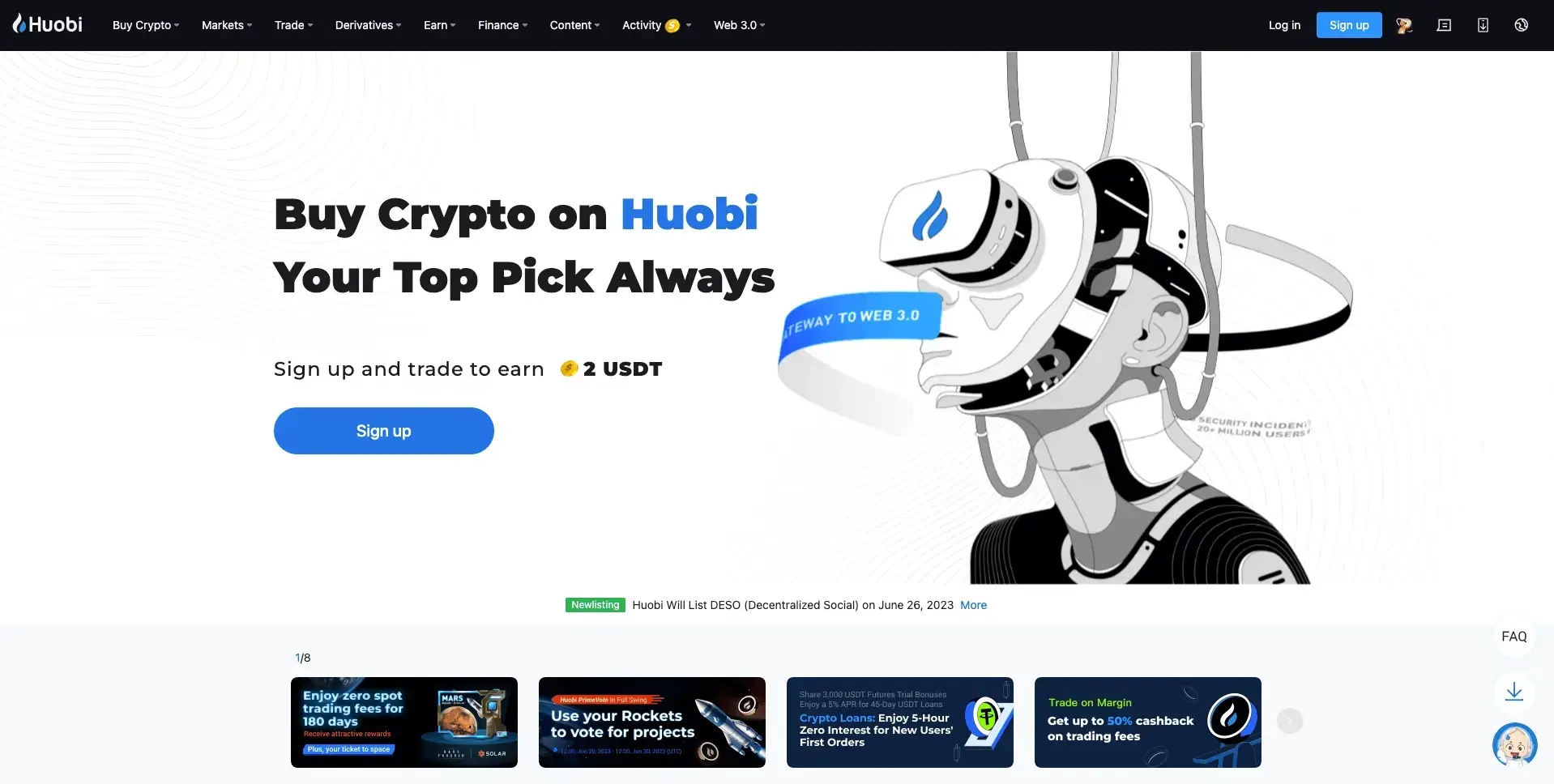
- Funding: $2 million
- Year founded: 2013
- Location: Beijing, China
- Growth: After launching a simulation trading platform in August 2013, Huobi received various investments, and at the end of the year, it managed to reach a trading volume of over 30 billion RMB (Chinese Yuan). Almost 3 years later, Huobi reached a trading volume of 1.7 trillion RMB and accounted for more than 60% of the global Bitcoin exchange market.
In 2018, Huobi acquired a 74% stake in electronics manufacturer Pantronics Holdings during a reverse takeover, thus becoming listed on the Hong Kong Stock Exchange.
About Huobi
Huobi is another popular crypto exchange used by millions of investors to buy, sell, and trade over 1,000 cryptocurrencies. Besides being one of the widely used cryptocurrency exchanges, Huobi developed Huobi DeFiLabs, a platform designed for DeFi research, investment, and incubation.
The main purpose of Huobi DeFiLabs is to build a better financial system by collaborating with the crypto and DeFi communities. Huobi DeFiLabs focuses on the research of underlying financial technology and theories, the investment and incubation of DeFi projects, and working with multiple already established DeFi companies to offer Huobi users a flourishing ecosystem.
4. VeChain
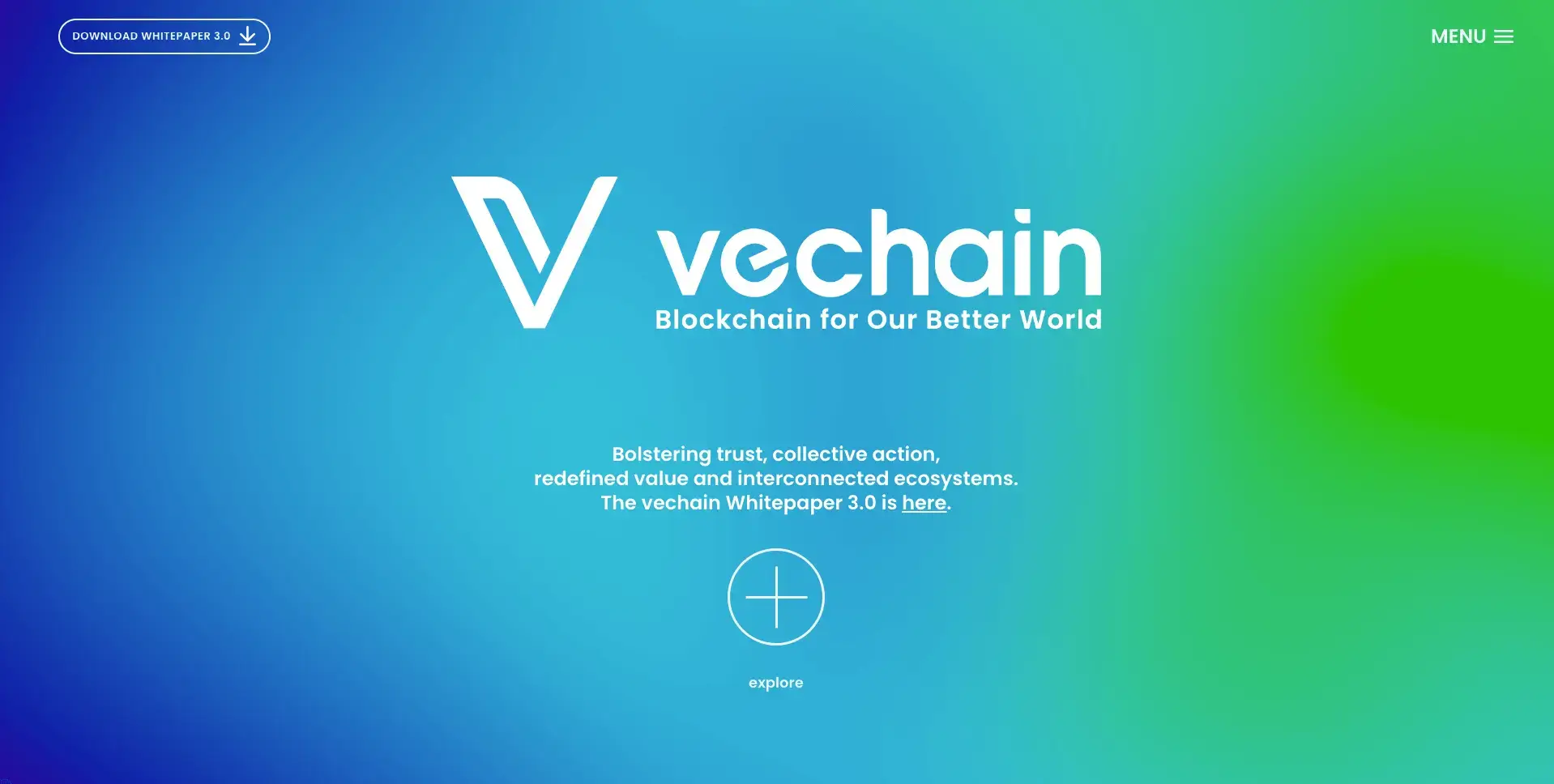
- Funding: Undisclosed
- Year founded: 2015
- Location: Singapore, Singapore
- Growth: After three years of relying on the Ethereum blockchain, VeChain transitioned onto its own blockchain and rebranded its crypto asset. Thus, the VEN blockchain became the VeChainThor (VET) blockchain. Over the years, VeChain has partnered with multiple companies, including Walmart and Renault. Together with Renault, Microsoft, and Viseo, VeChain created a car maintenance book that cannot be tampered with.
About VeChain
VeChain is a layer-1 smart contract platform that allows users to develop smart contracts and dApps on top of it. The platform was founded in 2015 by Binance founder Changpeng Zhao and former Chief Information Officer of Louis Vuitton China, Sunny Lu. The platform was first developed as a subsidiary of Bitse and was built on the Ethereum blockchain, but it then switched to its own blockchain in 2018.
VeChain aims to streamline supply chain management and various business processes. Besides, the project aims to become a leading platform for ICOs (Initial Coin Offerings) and for conducting transactions between IoT (Internet of Things) devices. And this is where VeChain tackles the DeFi problem the most.
5. Lido Finance

- Funding: $167 million
- Year founded: 2020
- Location: Grand Cayman, Midland, Cayman Islands
- Growth: Although it was first available on the Ethereum network, Lido then expanded to other blockchains. Thus, the project launched on Solana in September 2021. Only 1 month later, Lido launched on Polygon. In February 2022, the project started being supported by Kusama, and by May 2022, Polkadot started supporting Lido, too.
About Lido
Lido is a liquid staking solution for PoS cryptocurrencies that supports the post-Merge Ethereum consensus layer and multiple layer-1 PoS networks such as Solana, Polygon, or Polkadot. Launched in 2020, Lido is among the leading platforms for liquid staking and allows users to stake any amount of PoS crypto in exchange for block rewards and interest rates.
Basically, Lido can be considered a staking pool smart contract that decides to stake reward fees, mints and burns tokens, rewards users based on their staking activity, and manages users’ deposits and withdrawals. Through Lido, staking can be improved and can become more accessible for worldwide users.
6. Polygon

- Funding: $451.5 million
- Year founded: 2017
- Location: Yogyakarta, Indonesia
- Growth: After rebranding to Polygon Technology in 2021, Polygon started promoting itself as a Web3 and metaverse company. During the same year, the project acquired the Mir blockchain for 250 million MATIC. In February 2022, Polygon managed to raise $450 million during a fundraising round.
About Polygon
Polygon is a Layer 2 scaling solution for Ethereum that has emerged as a game-changer in the DeFi ecosystem. By addressing Ethereum’s scalability limitations and high transaction costs, Polygon highly contributes to the development of the DeFi sector.
With its fast and low-cost transactions, Polygon has attracted many users and DeFi projects by its side. Moreover, Polygon’s infrastructure has facilitated the development of innovative dApps across various sectors, including DEXs and NFT projects. These dApps empower users with greater financial sovereignty and offer new avenues for investment and wealth creation.
7. Injective
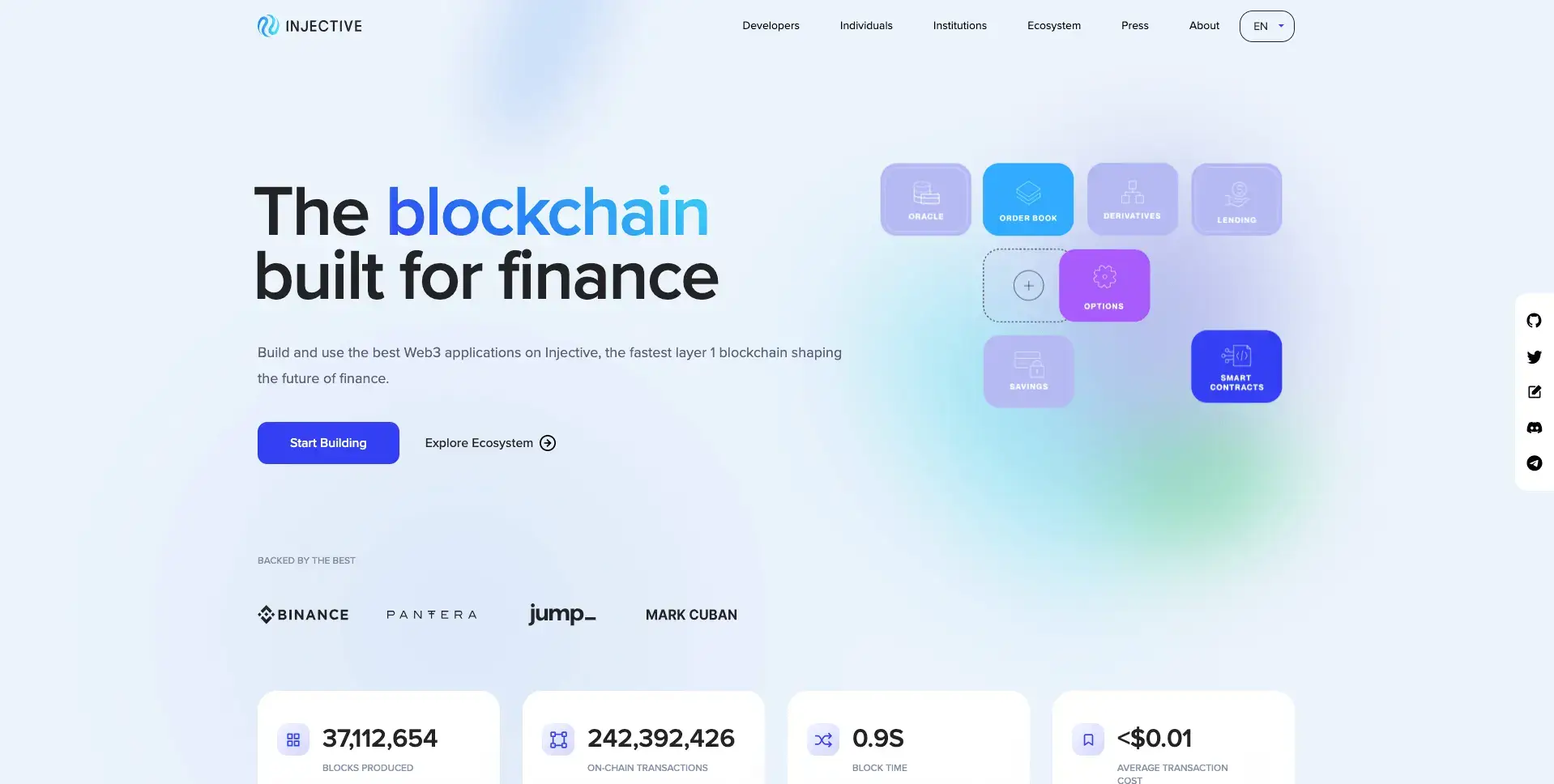
- Funding: $56.7 million
- Year founded: 2018
- Location: New York, New York, US
- Growth: In July 2020, Injective Protocol raised #2.6 million during a seed round led by Pantera Capital. At the end of the same year, the project announced the launch of its testnet phase for its DeFi lending platform. Shortly after, in February 2021, Injective was integrated with Avalanche to launch various interoperable derivatives. In November 2021, Injective Protocol launched its mainnet phase and started a $120 million incentive program.
About Injective
Injective Protocol is a fully decentralized platform developed by Injective for trading derivatives. Built on Ethereum and Cosmos, Injective Protocol allows users to trade a wide range of financial instruments in a secure, transparent, and decentralized manner.
Injective Protocol brings benefits, such as diversified investment opportunities and risk management tools, to the decentralized ecosystem. By expanding the range of available financial instruments, Injective Protocol significantly more opportunities that can lead to high winnings. Overall, Injective Protocol is contributing to the evolution of DeFi by providing a secure, efficient, and accessible platform for decentralized derivatives trading.
8. Binance

- Funding: $10 million
- Year founded: 2017
- Location: Cayman Islands
- Growth: Although being based in China in the first place, Binance moved its servers and headquarters out of the country in 2017, as China banned crypto trading during that year. In January 2018, Binance was the largest crypto exchange on the market, with a market capitalization of $1.3 billion. During 2018, Binance focused on various funding activities. In April 2018, the company launched the Binance Charity Foundation, and two months later, it raised $65 million along with three other companies for sports blockchain company Chiliz.
About Binance
Binance is the biggest and most popular crypto exchange in the industry. With a trading volume of almost $9 billion, Binance allows users to trade over 600 cryptocurrencies. The platform offers features like spot trading, futures trading, staking, yield farming, and lending.
Furthermore, Binance has played a crucial role in supporting the growth of DeFi projects through its investment arm, Binance Labs. The company has provided funding, incubation, and advisory services to numerous DeFi startups, constantly encouraging innovation.
9. Ava Labs
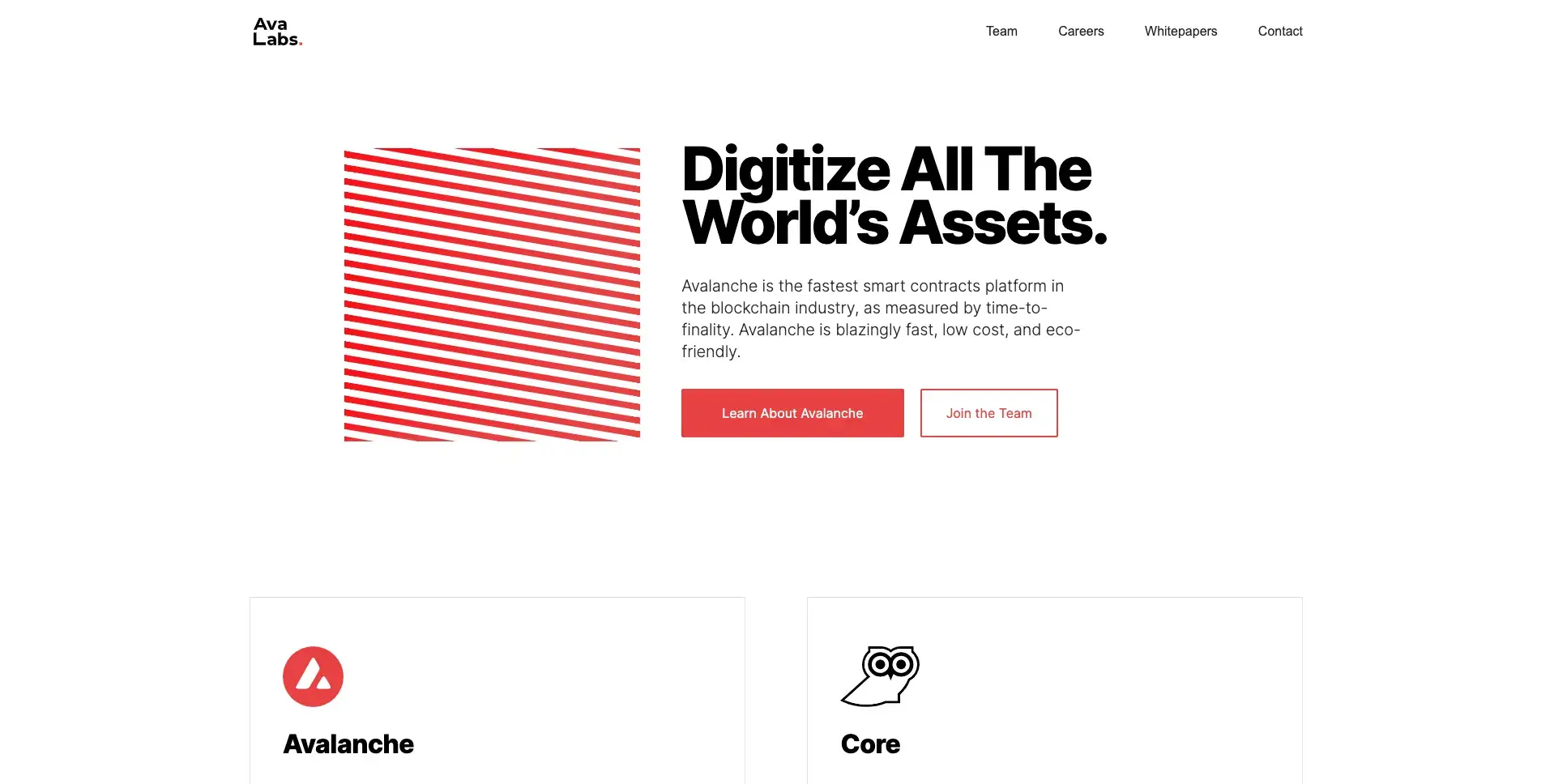
- Funding: $640.1 million
- Year founded: 2018
- Location: Brooklyn, New York, US
- Growth: After issuing AVAX in 2020, Ava Labs managed to get Avalanche among the top 10 cryptocurrencies by market cap. In order to improve Avalanche’s dApp ecosystem, Ava Labs announced its partnership with Amazon in January 2023. Only one month later, Avalanche partnered with the Indian game streaming platform Loco.
About Ava Labs
Being one of the top DeFi companies on the market, Ava Labs developed Avalanche, a smart contract platform that offers a scalable and interoperable solution designed to facilitate the development of dApps and financial products. Avalanche works based on a unique consensus mechanism that provides high throughput, low latency, and low transaction fees.
The network developed by Avalanche reduces the transaction processing time and lowers the costs compared to other blockchain platforms. And considering its significant advantages, plenty of DeFi projects are built on top of Avalanche. Avalanche’s interoperability will most likely gather even more projects to the community.
10. Uniswap
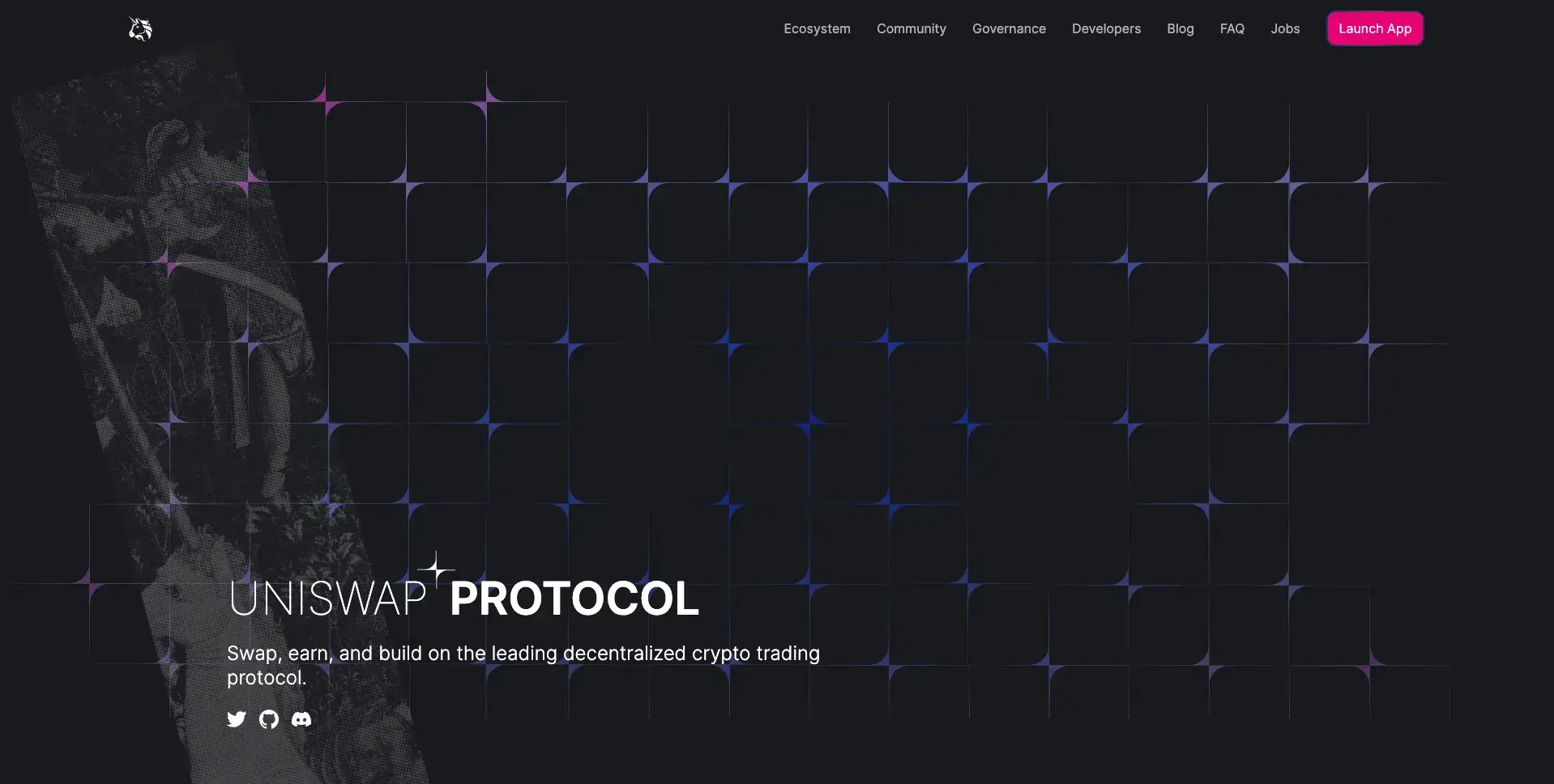
- Funding: $176 million
- Year founded: 2018
- Location: New York, New York, US
- Growth: After launching the first version of Uniswap, developers started working on decentralization and security while also focusing on optimizing Uniswap processes. Thus, in May 2020, Uniswap launched a 2nd version of the protocol, the main update being the addition of ERC20/ERC20 liquidity pools. During the same year, Uniswap announced the launch of UNI, its native token. In May 2021, Uniswap introduced the 3rd version of the platform, aiming to improve efficiency and security.
About Uniswap
Uniswap is a decentralized exchange (DEX) that operates on the Ethereum blockchain and allows users to swap ERC-20 tokens directly through smart contracts without intermediaries. Uniswap employs an automated market maker (AMM) model, where liquidity providers lock their assets into smart contracts to facilitate seamless token swaps.
Uniswap has revolutionized the way users trade tokens, providing a decentralized and permissionless platform for token exchange. This has significantly increased accessibility, efficiency, and liquidity in the DeFi ecosystem.
Other DeFi Companies to Consider
dYdX
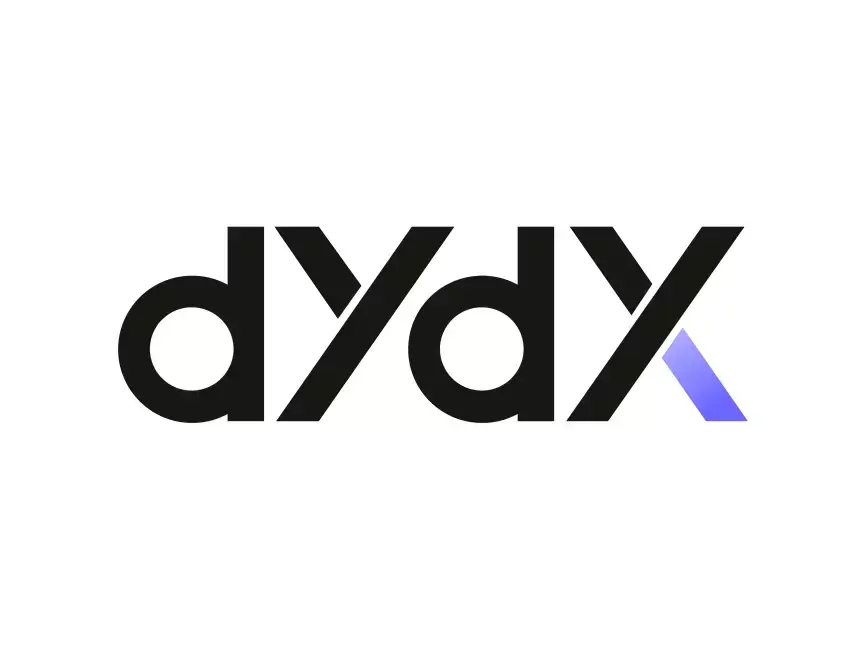
- Funding: $87 million
- Year founded: 2017
- Location: San Francisco, CA
- Growth: dYdX has raised a total of $87 million through venture capital funding rounds (Series A, B, and C). This contrasts with many DeFi protocols that rely primarily on cryptocurrency investments. The involvement of traditional venture capitalists suggests investor confidence in dYdX’s unique approach to decentralized finance.
Also, dYdX has experienced significant growth, with its search popularity increasing by a remarkable 2,900% over the past five years.
About dYdX
dYdX is a leading Decentralized Finance (DeFi) exchange founded by Antonio Juliano, a former Coinbase engineer. It aims to bridge the gap between DeFi and traditional centralized exchanges by offering secure and scalable DeFi trading, centralized exchange features, and venture capital backing.
Also, dYdX offers a secure and familiar trading experience within the DeFi landscape. Its blend of DeFi innovation and centralized exchange features positions it as a leader in the evolving world of decentralized finance.
Synthetix
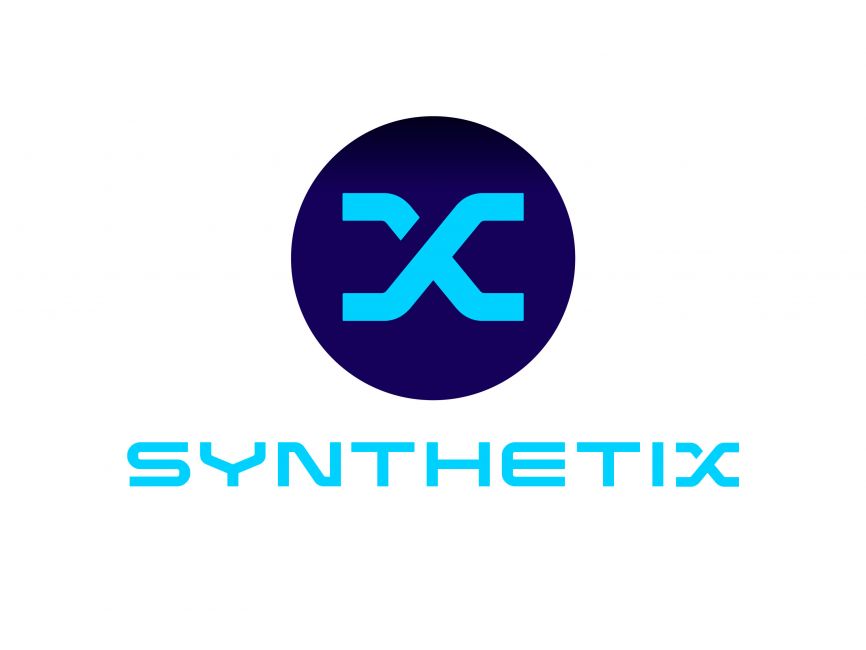
- Funding: $66.1M
- Year founded: 2017
- Location: Sydney, Australia
- Growth: Synthetix has carved a path as a leading DeFi platform for derivatives trading, and its journey is marked by impressive growth on multiple fronts. Over the past five years, Synthetix has witnessed a surge of 333% in search interest, reflecting a growing public awareness and interest in its on-chain derivatives offerings.
Moreover, Synthetix boasts a TVL of nearly $2 billion, indicating a substantial user base actively participating in their derivatives market.
About Synthetix
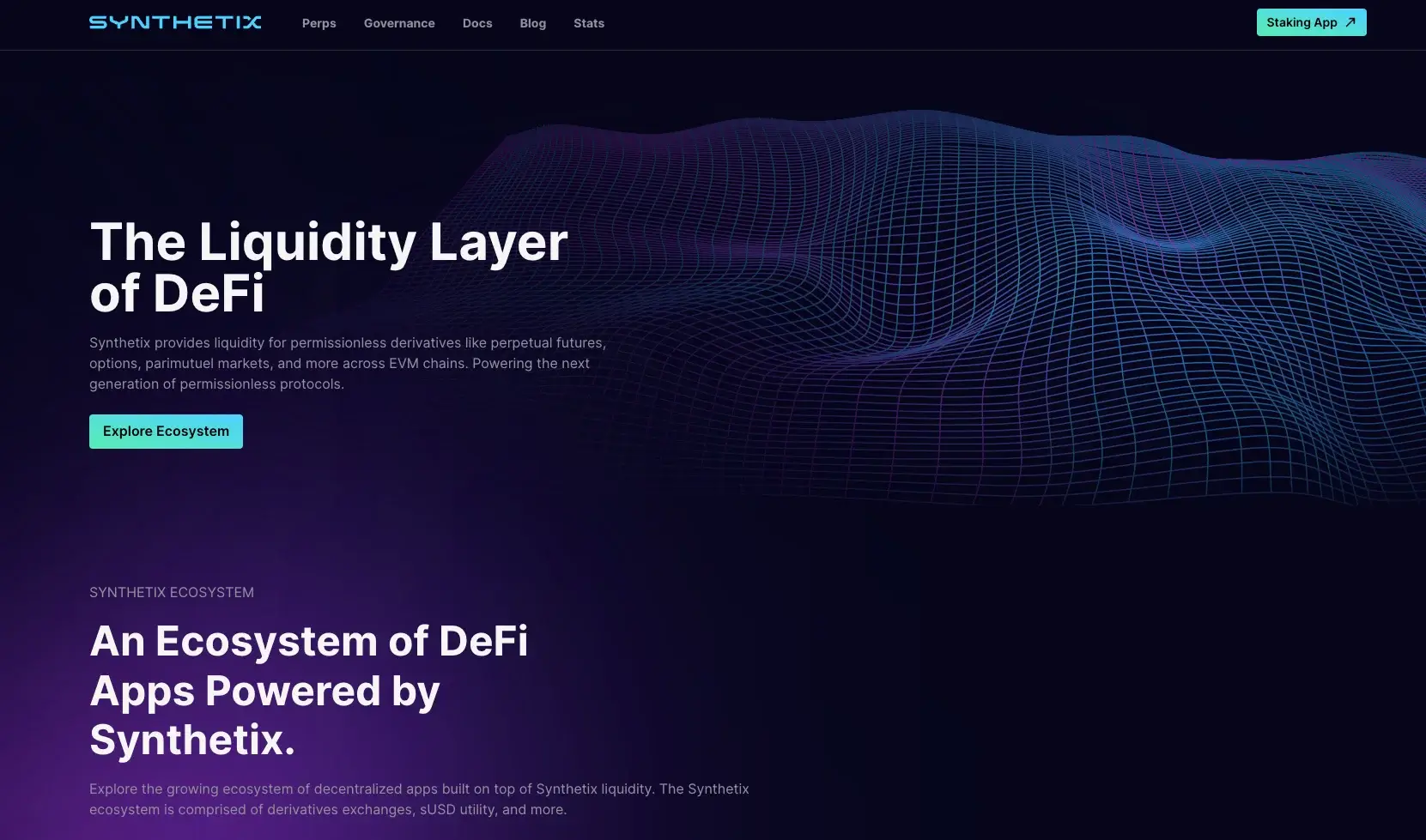
Established in 2017, Synthetix has emerged as a leading force in Decentralized Finance (DeFi) by pioneering a secure, on-chain platform for derivatives trading.
Synthetix empowers users to trade derivatives for crypto assets representing real-world holdings like gold and USD. This innovation allows for exposure to a wider range of financial instruments within the DeFi ecosystem.
Furthermore, Synthetix fosters a collaborative and incentivized environment. Users can contribute to the platform’s stability and earn rewards by staking SNX, the native token of the Synthetix network.
Prismetric

- Funding: Undisclosed
- Year founded: 2008
- Location: Gandhinagar, Gujarat, India
- Growth: Established in 2008, Prismetric has grown into a world-class IT outsourcing company, delivering over 1000 customized solutions for clients globally. While Prismetric offers a broad range of IT solutions, their focus in the DeFi (Decentralized Finance) space is on building custom blockchain applications that empower businesses to leverage this revolutionary technology.
About Prismetric
Prismetric empowers businesses with a comprehensive suite of IT solutions. They specialize in custom software development, catering to diverse platforms and technologies. From crafting user-friendly mobile apps to building secure blockchain applications, Prismetric leverages its expertise to translate client requirements into perfect IT solutions.
Prismetric understands the transformative potential of DeFi, which is why it offers expertise in developing secure, scalable solutions for various DeFi applications. Their team of blockchain developers can create the following:
- Smart Contracts – Self-executing contracts that automate DeFi transactions, ensuring transparency and security.
- DeFi Platforms – Custom-built platforms for lending, borrowing, and trading digital assets in a decentralized manner.
- Tokenization Solutions – Tokenizing real-world assets for increased liquidity and accessibility within the DeFi ecosystem.
FAQs
Which Companies are Leading in DeFi?
There are hundreds of companies that contribute to the development of decentralized finance, but the most popular include Binance, Coinbase, Chainlink, and Uniswap.
What are DeFi Products?
DeFi products are financial services provided by DeFi companies. For example, some DeFi products include insurance, staking, self-custody wallets, lending and borrowing services, and many more. DeFi products allow crypto users to perform various DeFi-related activities by using various decentralized apps.
What are the Benefits of Using DeFi?
DeFi is permissionless and extremely transparent, and such benefits can contribute to decentralizing the financial sector. The decentralized finance sector takes traditional financial institutions, products, and services and makes them decentralized, thus increasing security, lowering taxes significantly, and eliminating the need for third parties. DeFi allows users to transfer assets from anywhere in the world for as long as they have an internet connection and hold a crypto wallet.
To Wrap It Up
Crypto and blockchain technology have indeed changed many users’ investment plans, and DeFi is another concept that brings many advantages. Being safe, secure, transparent, and permissionless, DeFi platforms can and do contribute to decentralizing financial processes.
Some of the most popular DeFi companies include Coinbase, Uniswap, Chainlink, and Binance. Still, thousands of DeFi companies try to innovate and revolutionize by constantly launching various products and improving them. Besides, plenty of DeFi platforms are developing, and with this industry growing each day, DeFi will surely become the status quo in no time.
